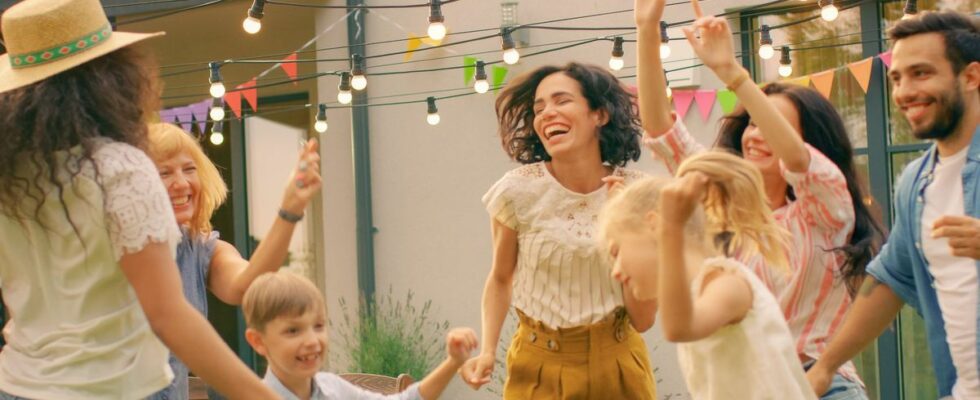Published on
Updated
Reading 3 min.
Marie Lanen
Head of parenting sections (baby, pregnancy, family), psychology and beauty

The Music Festival takes place every year on June 21. The opportunity to listen to artists near you and take your children to discover the joys of music. In fact, every child is born with a musical ear and their abilities decline if the ear is not stimulated by music between 0 and 1000 days. Claudia Kespy Yahi (founder of musical education at Cap Enfants crèches) has created an educational tool that stimulates children’s senses through music and sounds. Doctissimo tells you more.
If public authorities regularly return to the importance of encouraging children’s openness to culture, socialization, and multi-sensoriality from a very young age; what could be more immersive than Music Festival to develop this? Claudia Kespy Yahi (founder of musical education at Cap Enfants crèches) discusses the importance of music for young people.
An innate musical ear
Every child is born with a musical ear and their abilities decline if the ear is not stimulated by music between 0 and 1000 days. Claudia Kespy Yahi created the musical bubble, an educational tool invented in the Paris region and which is now exported throughout the world. It stimulates children’s senses through music and sounds (musical journeys), thus promoting preparation for learning, socialization, openness to the world, development, etc. From the youngest, unlike screens, which should ultimately be banned for children before the age of 3 (the famous first 1000 days). Moreover, in a previous article, Nawal Abboub (Doctor of cognitive sciences) already enlightened us on this innate musical ear in babies: “Processing sounds is innate in babies. They are very receptive to music, it gives them many emotions. Research has also shown that their brain is capable of very subtly analyzing different sounds, in very precise ways, particularly when they hear music in utero.“.
When music comes to the nursery
If nurseries have not had a good press lately, many establishments are developing fantastic educational projects to awaken babies and open them up to the world. This is particularly the case for Cap enfants crèches which have been developing multi-sensory and musical pedagogy for more than 15 years through its Musical Bubble where children are immersed in soundscapes, different languages, smells, customs, etc. Its creator, Claudia Kespy-Yahi, wanted to diversify this offer on the occasion of the music festival. Every June, several artists will carry out “ARTISTS IN CRECHES workshops/shows” for little ones in Ile-de-France around olfaction, music, singing, painting, etc. “Addressing all children without distinction with an inclusive pedagogy which aims to fight against birth inequalities is one of the pillars of musical pedagogy®“, specifies Claudia Kespy-Yahi. “But also, enrich the cultural universe of little ones to contribute to their openness to the world, prepare them for learning and develop their creativity. Offer a wide range of multisensory activities in which the child participates, accompanied and supervised, but at their own pace to promote their autonomy. And obviously, give music, the universal language par excellence, a central place, because its multiple benefits on the cognitive, motor and emotional development of little ones are proven.“, she adds.
The benefits of music for children
Listening to music and playing musical games has a very positive impact on language acquisition, spatial cognition and socialization in toddlers. Scientific work within Cap Enfants crèches, the results of which were published in May 2022 in the international journal: “Music education research” under the title: The positive learning transfer from a musical play early-learning system® to young children’s linguistics and spatial skills, demonstrate these effects. The results highlight very significant differences in favor of the musical crèches® group which obtain excellent scores for language and spatial cognition. These differences persist when the socio-cultural status of the family is controlled. Such results support the hypothesis according to which the experience of musical crèches® would facilitate the establishment of transfer mechanisms between language acquisition and spatial cognition. Results which do not surprise our expert Nawal Abboub who also mentioned these positive aspects: “sounds and music are associated with moments of life, with words; but also to the parent-child bond. These interactions nourish these bonds and develop children’s social skills. Music is much richer than we think!“.
This evening, we don’t hesitate to go to the city center to listen to music with the family! And to find all the concerts near you, the Government website (“consult the program” tab) offers a interactive map.

